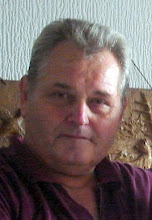In the
past I’ve made the case that Jesus probably was born sometime in September. If
that’s the case then what really happened in December? Is Christmas just the
result of overlaying Christian beliefs on a formerly pagan holiday as some
believe, or is there more to it?
Happy Hanukkah
To
find the answer we begin with a look at the Jewish Feast of Hanukkah. Maybe
you’ve heard the story of Hanukkah, but if not here’s a brief summary. In 165
BC, during the time of the Maccabean Revolt, the Jews recaptured their
desecrated Temple from Syrian dictator Antiochus Epiphanes and undertook a
rebuilding and cleansing process to make it fit for worship again. (Angry with
the Jews and defiant toward God, Antiochus had captured the Temple, sacrificed a
pig on the altar, and erected a statue of the Greek god Zeus in the Holy Place
requiring everyone to worship it on pain of death. This outrageous act rendered
the Temple unclean and became known as the Abomination of Desolation.)
Jewish
tradition holds that when they prepared to cleanse the Temple to make it fit for
use again, the priests could not find enough Holy Oil to keep the Temple
Menorah, a large 7 branched oil lamp, lit for the required 8 day purification
ritual. They only had enough for one day. But they went ahead in faith and God
multiplied that small supply so that it lasted for the full eight days making
the Temple Holy again.
Since
then, this miracle has been commemorated in the Feast of Hanukkah, an eight day
celebration that includes the use of a special 9 branched candlestick called a
Hanukkiah, short for Hanukkah menorah. The Hanukkiah has a single elevated
branch, representing the available supply of oil, and 8 additional branches, one
for each day of the purification ritual. Each day of the celebration an
additional candle is lit, always using the flame of the elevated candle, until
on the final day all the candles are burning. This reminds them that the light
for each day came from the single day’s supply of oil they began with.
Hanukkah is also referred to as the Festival of Lights for this reason.
By the
way this Abomination of Desolation is an act destined to be repeated and will
again trigger a revolt, this time involving the whole world. When you see a
Temple in Jerusalem you will know the time is near, and when you see the
Abomination of Desolation standing in the Holy Place you will know that 3 1/2
years of the most terrible time man has ever known have begun (Matt 24:15-21). Whether you see this
from Earth or Heaven will be determined by whether you’ve previously accepted
the Lord’s death as payment for your sins.
What Day Is
This?
As you
know Hanukkah takes place around Christmas so I’m going to use the proximity of
the two events to make what some would call an outrageous claim. I believe
there’s a theological connection between Hanukkah and Christmas that does
nothing less than state God’s position on the beginning of life.
In a
previous study I demonstrated that in all
probability John the Baptist was conceived in what would have been mid to late
June on our calendar and born the following March. John’s mother and father
were Elizabeth and Zechariah. According toLuke 1:36 Mary conceived in the 6th
month of Elizabeth’s pregnancy. That means that our Lord was conceived in late
December and born the following September. Because the calendars are different
the exact dates vary from year to year, but each year Hanukkah takes place in
close proximity to Christmas. Jesus is called “the True Light that gives light
to every man” (John 1:9). Was
Jesus, “The Light of the World” conceived during the Festival of Lights? Are we
unknowingly celebrating His conception at Christmas instead of His birth? If
that’s the case do you realize what God is telling us?
When Did
Christmas Begin?
The
fact that Jesus is God incarnate is amply supported in Scripture. But when did
He become God and why did He choose to come into the world the way He did? Jeremiah 1:4-5, Psalm 51:5 and 139:13-16 all allude to the fact that
God knew us from the moment of our conception. He knew all the details of our
lives and considered us human from that time. To merely be with us in human form
Jesus could have arrived as a fully grown man but He came as an embryo because
that’s the way all humans begin their life.
Christmas
began at the moment of divine conception. God the Father planned it, God the
Holy Spirit planted the fertile seed in Mary, and at that moment God the Son
took on human form in the womb of a virgin. From that first moment of conception
Jesus was very much alive, very much human, very much God. He didn’t become the
Incarnate God somewhere along the path of His life, or even when He emerged from
Mary’s womb. He had been such from the moment of conception (Luke 1:35). God could not have made any
stronger statement about the sanctity of pre-born life.
As a
poor, unwed teen-aged girl about to be ostracized from family and society, Mary
met all the modern criteria for a therapeutic abortion. But had she and Joseph
sought one, it would have been just as much the murder of the Messiah as was His
death on the cross 33 years later. So the life of the Christ child really did
begin at Christmas. And now you know the adult version of the Christmas story.























No comments:
Post a Comment